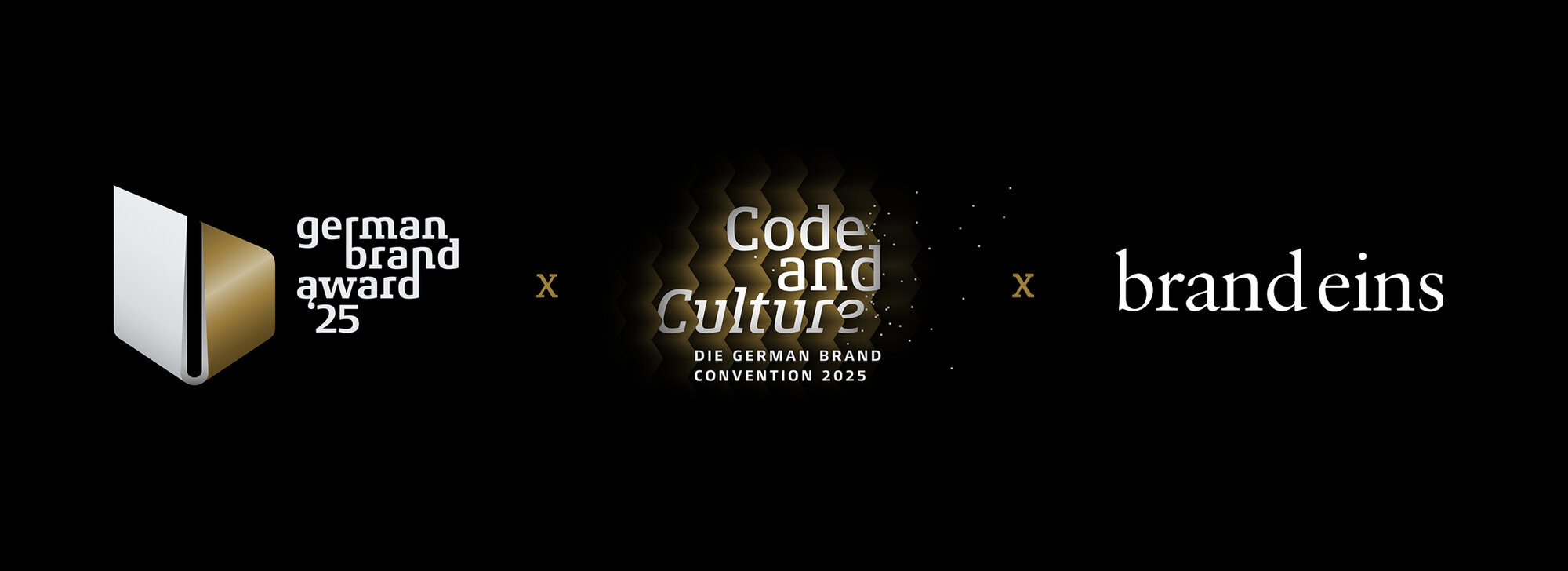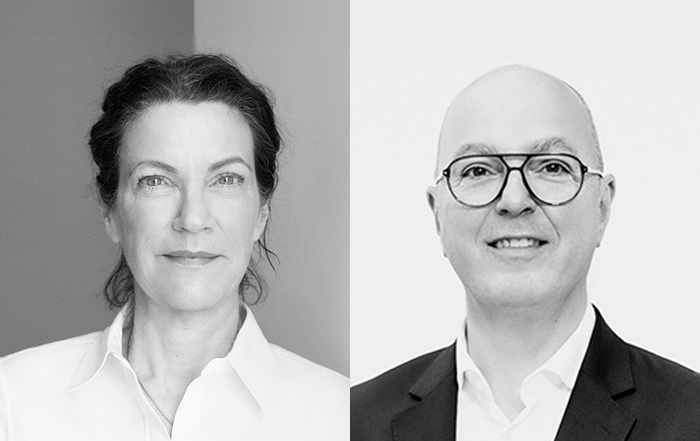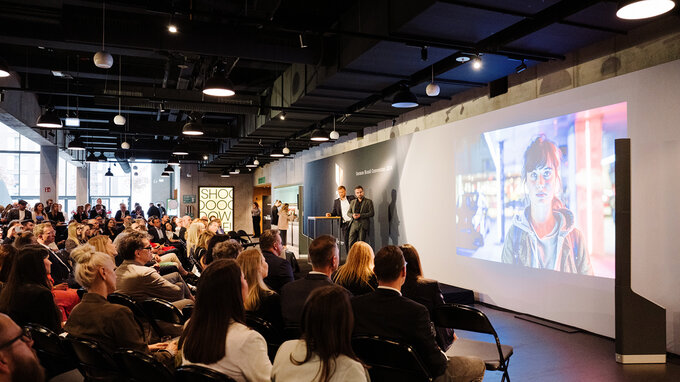brand eins – Reliable partner for working with brands and organisations

The term Brand is the core of both identities: brand eins is supporting the German Brand Award for the first time this year as an official media partner. Together, our shared expertise and intuition for brand identity and leadership are reflected in the recognition of outstanding individuals, companies, campaigns, and strategies.
In this synergy, we set a brand mark – for those who don’t just keep up with the times, but lead them.

Brand is steadiness, orientation – and a promise. This is something that brand eins editor-in-chief Gabriele Fischer and Lutz Dietzold, Managing Director of the German Design Council, agree on:
Ms Fischer, what role does the term ‘brand’ play for brand eins - and how has your view of it changed over time?
Over the years, we have repeatedly focused on the brand because we see it as an obligation. In 2005, a headline read: “Promises must be kept”. We still adhere to this today and in 2022 we ran the headline: “Brands are more present than ever – but also more vulnerable than ever.”
Mr Dietzold, how do you define the value of a brand today – especially in times when orientation and trust seem more important than ever?
Interestingly, the feedback from the market is that classic brands do particularly well in disruptive times, in phases of rapid change. Consumers then seem to resort to the tried and tested. Heritage is also playing an increasingly important role for companies: where do I come from, what do I do, am I credible? Do people trust me – also when it comes to sustainability? The brand is the compass through the transformation. It provides stability and orientation and ensures continuity in turbulent times. It helps to focus on a clear line. And also to invest in the brand.
Ms Fischer, you once said: “brand eins is not loud – we are clear.” Does that also apply today to brands that want to have a long-term impact?
We've all learnt in recent years that the battle for attention has become increasingly polyphonic and heated – if you want to win with volume, you need a huge budget. But it can also be done with humour, originality and honesty, as the Berlin public transport company has proven time and again.
Mr Dietzold, many brands today rely on strong visual stimuli. Is clarity sometimes a greater challenge than attention?
Design is the distinguishing elements between competitors. We are experiencing a high level of market saturation and products often seem interchangeable. It is first and foremost the design language that attracts customers` attention. Recognisability and trust in a brand are important parameters in building a successful customer relationship. A consistent brand strategy strengthens brand loyalty if it can be experienced holistically. Conspicuousness alone is not enough. It is crucial that the communication matches the brand and consistently creates trust across all points of contact.
Ms Fischer, how important is it today that companies not only position themselves but also make themselves positionable?
I'm not sure if I understand “positionable” correctly – if it means that a brand is so clearly positioned that it can be assigned to people, attitudes and yes, even media: I would consider that important.
Mr Dietzold, how does an award like the German Brand Award help companies, agencies and institutions to make their positioning more visible?
German economy proved over time that it can be innovative and able to recognize consumer needs quickly. Nevertheless, innovative technologies and products need a presence in order to be recognised in the market. Those who manage to stand out in a highly competitive market have a clear advantage. Sharp positioning and continuous brand work therefore pay off – visibility does not come about by itself, but is the result of strategic efforts.
Ms Fischer, brands are increasingly moving between technology and responsibility – especially with regard to artificial intelligence and sustainability. How do they manage to remain credible?
This is still more of a pious hope – because artificial intelligence is still in its infancy and sustainability is a constantly evolving and changing concept. What seems sustainable today may be identified as harmful to the environment tomorrow, so the only thing that helps is to leave no doubt about your honest endeavours.
Mr Dietzold, what opportunities do you see for brands to establish themselves as responsible players in social change – even beyond design and communication?
A lot has happened, especially when it comes to sustainability. Five years ago it was enough to collect plastic bottles from the sea and make a new product out of them. Today it's crucial that the bottles don't end up in the sea in the first place. Companies must document their cycles, reflect on the social consequences and act accordingly. Companies that ignore this are increasingly facing problems. It is therefore not enough to simply propagate sustainability or responsibility – you have to live it credibly. The same applies to technological change: anyone who misses out on new developments such as artificial intelligence will sooner or later be left behind.
Ms Fischer, what function can an award such as the German Brand Awards fulfil in today's understanding of brands?
I experienced the jury discussion as being committed to precisely this honest endeavour. Neither the price of a campaign nor its volume were decisive, but the credibility and degree of innovation. The award winners also received proof that their brand work was recognised as honest and forward-looking.

Forward-thinking ideas at the German Brand Convention
How can brands actively shape change? The balancing act between technical feasibility and creating cultural meaning becomes tangible with ‘Code and Culture’. Under this motto, keynote speakers will share their approaches and ideas at the German Brand Convention. Together with brand eins, the exclusive networking event will focus on the topics of artificial intelligence, circularity, and brand management.

